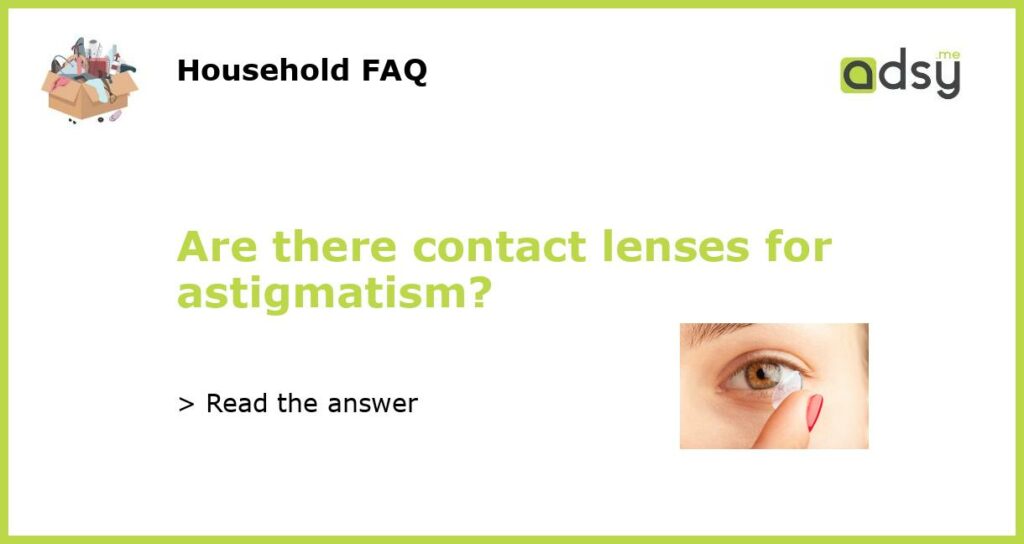Yes, there are contact lenses specifically designed for astigmatism
Astigmatism is a common vision problem that occurs when the cornea (the front surface of the eye) or the lens inside the eye has an irregular shape. This causes light to focus unevenly, resulting in blurry or distorted vision. Traditionally, glasses have been the preferred method of correcting astigmatism, but contact lenses have become an increasingly popular alternative. If you have astigmatism, you’ll be glad to know that there are contact lenses available that can help correct your vision.
Toric contact lenses are the most common option for astigmatism
Toric contact lenses are specifically made to correct astigmatism. These lenses are designed with different powers in different meridians of the lens to help compensate for the irregular shape of the cornea or lens. Toric lenses have two main parts — one that corrects the astigmatism, and the other that corrects nearsightedness or farsightedness if needed. These lenses are available in both soft and rigid gas permeable (RGP) materials, so you can choose the type that suits your needs and preferences.
Rigid gas permeable (RGP) lenses may be a better option for some people
Rigid gas permeable (RGP) lenses, also known as hard contact lenses, are another option for astigmatism. These lenses are made from a rigid plastic material that allows oxygen to pass through, helping to keep the eyes healthy. RGP lenses provide sharper vision than soft lenses, especially for individuals with moderate to high astigmatism. They also tend to be more durable and have a longer lifespan compared to soft lenses. However, RGP lenses may take some time to get used to, and they require a longer adaptation period compared to soft lenses.
Specialty contact lenses and hybrid lenses can also correct astigmatism
In addition to toric and RGP lenses, there are also specialty contact lenses and hybrid lenses that can correct astigmatism. Specialty contact lenses, such as scleral lenses, are designed to vault over the cornea, providing a smoother and more regular surface for light to pass through. Scleral lenses are larger in diameter compared to traditional contact lenses and are often used for more severe cases of astigmatism. Hybrid lenses, on the other hand, combine the best features of both soft and RGP lenses. They have a rigid center for sharp vision correction and a soft outer ring for enhanced comfort.
Consult with an eye care professional to find the best contact lenses for your astigmatism
If you have astigmatism and are considering contact lenses, it’s important to consult with an eye care professional to determine the best option for your specific needs. They will perform a comprehensive eye exam and recommend the most suitable contact lenses based on factors such as the severity of your astigmatism, your lifestyle, and your comfort preferences. Remember, wearing contact lenses that are not specifically designed for astigmatism can lead to discomfort, blurry vision, and even damage to the eyes. So, don’t hesitate to seek professional guidance to ensure you choose the right contact lenses for your astigmatism.






